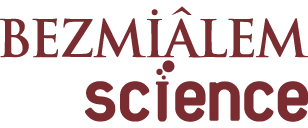ÖZET
Amaç:
Probiyotikler, yeterli miktarlarda alındığında konakta yararlı etkiler sağlayan canlı mikroorganizmalar olarak tanımlanır. Bazı probiyotiklerin sahip olduğu immünomodülatör etki bunlardan biridir. Biz bu çalışmada, probiyotiklerin sepsiste bazı enflamatuvar sitokin düzeyleri üzerindeki etkilerini araştırmayı amaçladık.
Yöntemler:
Çalışmamızda 12 farklı canlı probiyotik bakteri içeren karışım kullanıldı. Grup 1 ve grup 2 sırasıyla kontrol ve sepsis grubu olarak değerlendirildi. Grup 2, 3, 4, 7 ve 8’de yer alan deney hayvanlarında çekal bağlama ve delme yöntemi kullanılarak sepsis geliştirildi. Grup 3 ve 4’te yer alan deney hayvanlarına sepsis öncesi 21 gün süreyle, grup 7 ve 8’dekilere ise sepsis sonrası tek doz olmak koşuluyla sırasıyla 1010 ve 1011 dozlarında hazırlanan karışımdan uygulandı. Grup 5 ve 6’da ise aynı dozlarda sepsis oluşturulmadan probiyotik uygulaması yapıldı. İnterlökin (IL)-1β, tümör nekrozis faktör (TNF)-α, IL-10 ve büyüme faktörlerini dönüştürme (TGF)-β seviyeleri ELISA yöntemiyle ölçüldü.
Bulgular:
Sepsis grubunda, TNF-α ve IL-1β seviyeleri bakımından ciddi derecede artış ve 21 gün koruyucu tedavi uygulanan gruplarda ise ciddi derecede azalış tespit edilmiştir. Anti-enflamatuvar sitokinler olan IL-10 ve TGF-β seviyeleri detaylı şekilde incelendiğinde 21 gün koruyucu tedavi uygulanan gruplarda sitokin seviyeleri kontrol grubu seviyesine erişememiş olsa da, sepsis grubuna nazaran ciddi derecede artış tespit edilmiştir.
Sonuç:
Bulgularımıza göre probiyotikler, sepsisin klasik medikal tedavisine ek olarak destek amaçlı kullanılabilir. Ancak, probiyotiklerin etkilerinin standardize edilebilmesi ve hayvan deneylerinin yanı sıra gönüllü donörlerde de muhtemel probiyotik etkilerin gösterilebilmesi için daha kapsamlı çalışmaların yapılması gerektiğine inanmaktayız.



